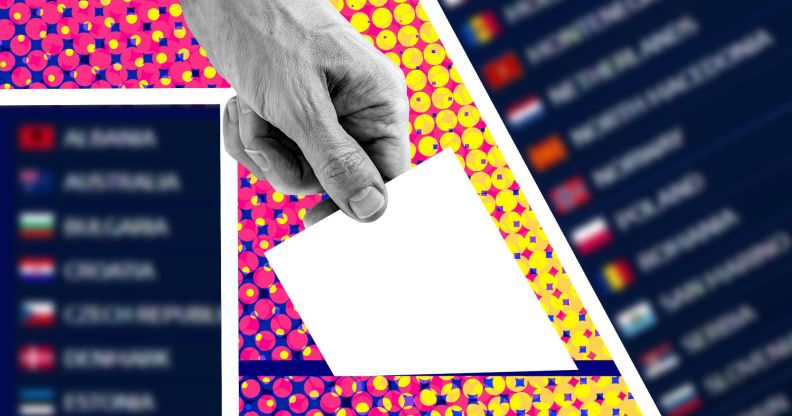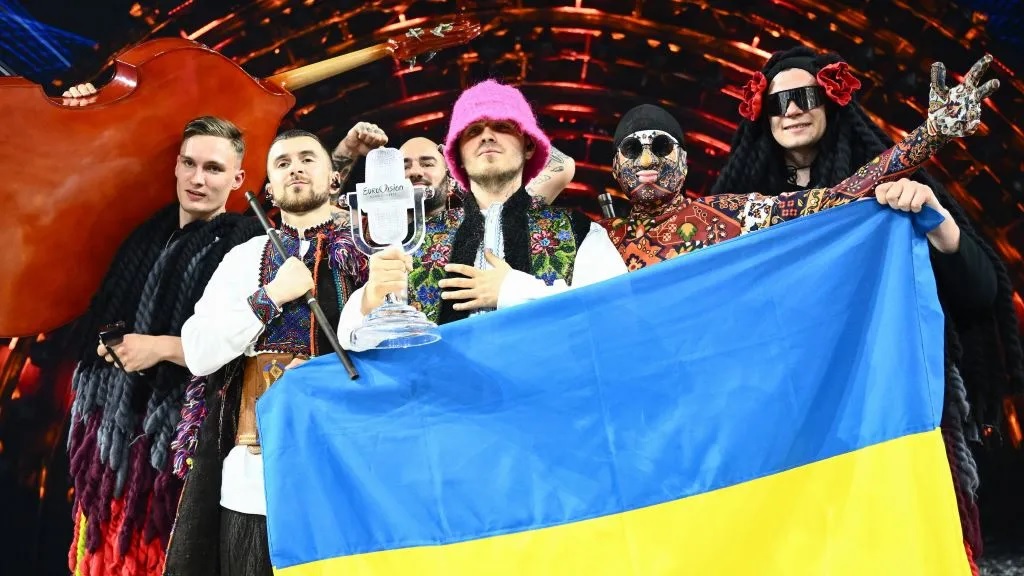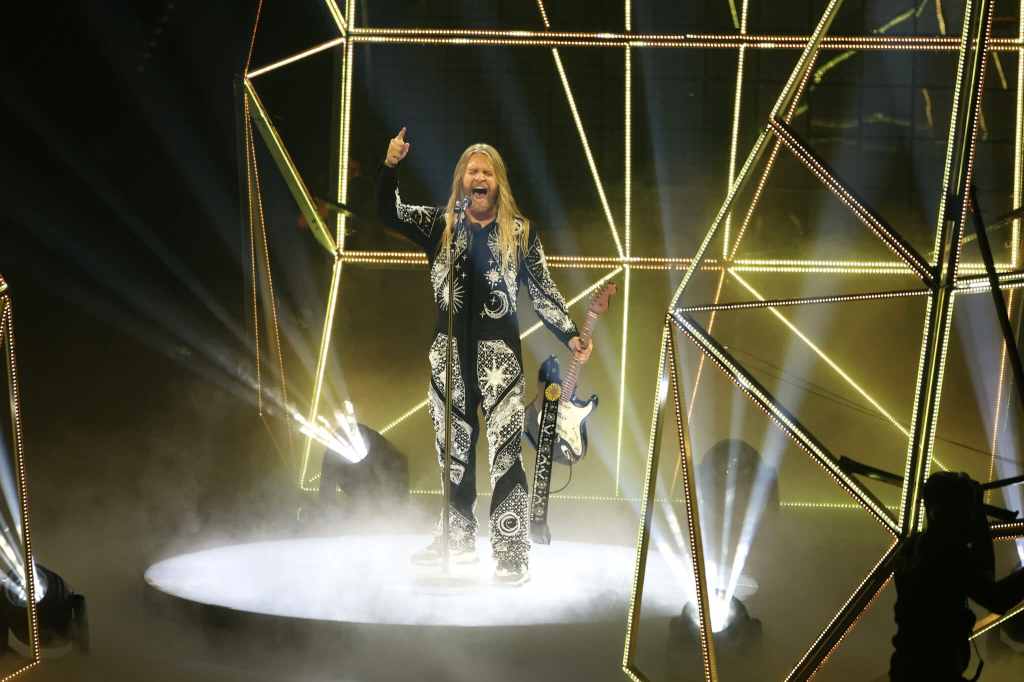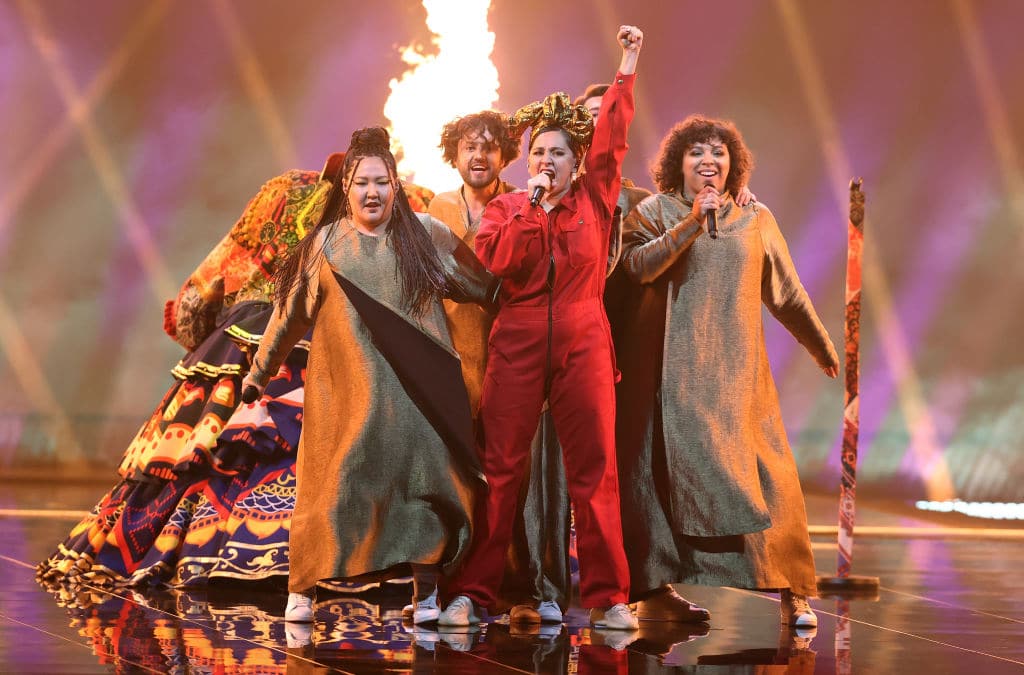Eurovision voting scandal: How song contest was rocked by vote-fixing, and how it shaped future events

A 2022 voting scandal at the Eurovision Song Contest has damaged trust and reinforced stereotypes that it’s all political. (Getty/YouTube/PinkNews)
Eurovision 2022 was rocked by scandal when it emerged that juries in six countries had apparently been fixing their votes.
At the semi-final stage, the jury votes from Azerbaijan, Georgia, Montenegro, Poland, Romania and San Marino were scrapped due to “irregular voting patterns”.
That incident has led to a shift in the Eurovision Song Contest. For the 2023 competition, there were no jury votes at all in the semi-finals – it was all decided by the public.
For Eurovision fans, it was a disappointing, frustrating scandal because it reaffirms what a lot of people already think about the contest – that it’s all political and doesn’t really have anything to do with the songs.
It also brought into sharp focus just how detrimental a scandal can be to the contest’s credibility – and how much controversy can damage the public’s faith in what is, at the end of the day, supposed to be a fun, glittery affair.
“I think I, along with a lot of fans, were very disappointed that certain countries were trying to game the system and manipulate their way into the Grand Final,” says Anthony Granger, editor-in-chief at Eurovision fan website Eurovoix.

“It does cast a shadow on the results from last year and leave a lot of question marks about what would have happened should those juries not have attempted to game the system.
“It is also quite remarkable that these actions would be taken for what ultimately is just a television show, but it really shows what it means to make it to the final for the countries taking part.”
Eurovision voting scandal made contest look political
Vaughan Staples, president of the UK’s Eurovision fan group, says the 2022 scandal has made it harder for fans to convince the wider public that the voting isn’t all about politics.
“We often say, if you enter a song that’s decent enough, you’ll do well. So when something like that happens last year of course as a fan you think, ‘that’s taken us three steps back on trying to convince people that these sorts of things don’t take place’.”
Having said that, Vaughan understands why the voting scandal happened in the first place – juries agreed to vote for each other because winning the Eurovision Song Contest is a big deal.

“If you win, you host the next contest so the prize is basically, you get to bring a load of people to your country and show it off,” he says.
“That’s a big draw for certain countries, particularly smaller countries where they’re never going to win the World Cup or have the Olympics in their country.
“Eurovision is actually possible because ultimately, if they win the contest, they get the chance to host it. That, sadly, is big enough a draw that certain countries go down the route of tactical voting.”
Because the semi-finals are now entirely decided by the public, Pedro Santos, a Eurovision fan and reporter with the Eurovision World fan site, fears the grand final could lose out on some of its usual magic. He says the juries often “save entries that are not so commercial”.
“Sometimes the public really likes the fun things, the weird things, the freaky things, whereas the die-hard fans like the quality of the song, so that’s where the jury is important,” he says.
“Removing the jury was a good move in terms of fighting corruption but it’s sad that others now have to pay the consequences for that. But they have to do what they have to do to make sure the contest is clean.”
To many, the Eurovision Song Contest might seem like a lighthearted affair, but the fallout from the 2022 voting scandal shows just how influential it is – and how important it is for countries to be able to compete and to win. That’s why it’s governed so strictly, with a complex set of rules, by the European Broadcasting Union (EBU).

Over the years, the EBU has worked tirelessly to ensure the contest is watertight – as part of that, they’ve always tried to ensure that Eurovision is non-political so there are no accusations of bias or unfair treatment along the way.
But things are slowly starting to change. Ahead of the 2022 contest, the EBU caved under extraordinary pressure and decided to expel Russia from the contest over its invasion of Ukraine. At the end of the day, the logic was simple: it would be cruel to make Ukraine’s act perform on the same stage as its oppressor.
“The event prides itself on being non-political to quite a fierce degree, and that was the first time ever I’d seen the contest take a stand,” Vaughan points out. “Before then they would not take a stand and actually they were not quick off the mark on making a decision on Russia not being on the contest, they were a lot slower than others might have been.”
He thinks the EBU is generally afraid of taking any action that might be seen as a political stance because they could then be expected to take a stand on other issues, such as Israel’s continued participation in the contest.
“If you start taking a stand, where do you stop?” Vaughan asks.
How did this story make you feel?

